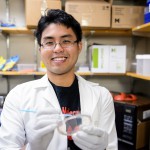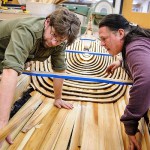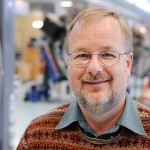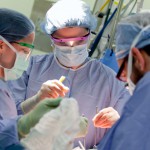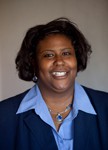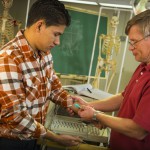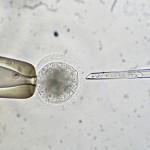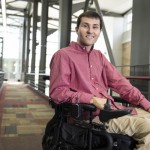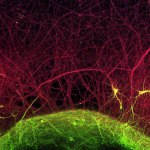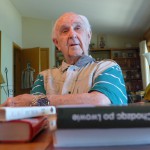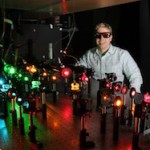Tag School of Medicine and Public Health
Boundless Together, Part 4
The last of four new commercials about UW–Madison will premiere this weekend during the Badger football game. Learn more about the research highlighted in the spot.
Compound doubles up on cancer detection
Tagging a pair of markers found almost exclusively on a common brain cancer yields a cancer signal that is both more obvious and more specific to cancer, according to a study published last week in the Proceedings of the National Academy of Sciences (PNAS).
Innovative teaching practices encourage students in STEM
Like many seniors majoring in biology, Christian Hernandez is pursuing the pre-med track. However, he nearly didn’t make it past his freshman year at the University of Wisconsin–Madison As a Latino first-generation college student, Hernandez says he had no role models to help him achieve his career goal: to change the face of medicine in the United States. But then he took Physiology 335.
Neal First, whose work led to cattle cloning, dies at 84
Emeritus Professor Neal First, a pioneer in cattle reproduction and cloning who studied animal physiology at the University of Wisconsin–Madison for 45 years, died Nov. 20 from complications of cancer.
Alumnus finds passion for patient advocacy after accident
When Jeff Mahlum suffered a spinal cord injury during a diving accident in 2011 that left him paralyzed from the chest down, he had the unfortunate opportunity to learn how confusing and daunting the health care system can be. Having graduated with a major in biology from the UW in 2013, Mahlum decided to use the gap year between undergraduate and medical school to learn more about how he could understand the needs of his future patients. Mahlum, who’s now enrolled at the UW School of Medicine and Public Health, discovered patient advocacy and the Center for Patient Partnerships.
Legend in genetics at forefront of book about heroism during 20th century’s darkest hours
Waclaw Szybalski, 92, a genius of genetics who has been repeatedly mentioned as a candidate for the Nobel Prize, grew up as an aspiring scientist during World War II in the eastern part of Poland. Many of Szybalski's most significant wartime roles concerned a decidedly applied type of science: He cooked TNT so the Polish resistance could sabotage rail lines. He participated in smuggling typhus vaccine to Jews in the Warsaw Ghetto. And he fed lice and supervised "louse feeders."

